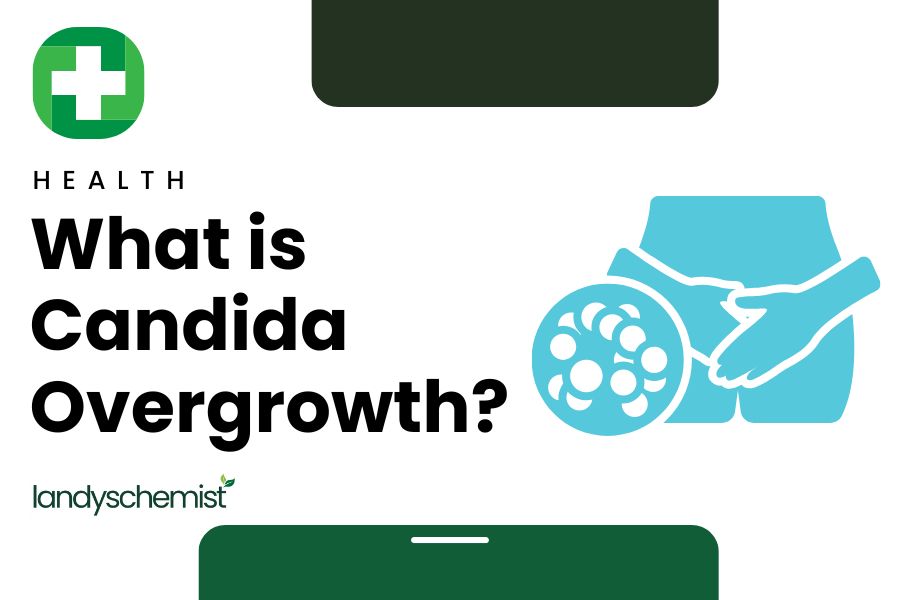
Pregnancy Supplements: What Should You Be Taking?
When you are planning to get pregnant, or during the early stages of your pregnancy, your thoughts will naturally turn to nutrition and health. You will want to make sure that you and your soon-to-be baby have all the right vitamins, minerals and other nutrients needed for healthy development.
Generally speaking, you should continue to enjoy a balanced range of foods and, assuming you don't have any allergies or dietary restrictions, you will be able to get all the necessary nutrients by eating well. However, since pregnancy requires additional output as the baby develops, there are some vitamins, minerals and nutrients that you may need to take a supplement for.
Here, we look at the common nutrients that are supplemented before and during pregnancy. As with all supplementation, it is recommended you speak to your GP before taking anything.
Table of Contents
What Supplements Should I Take During Pregnancy?
There are a few pregnancy supplements that are recommended for every pregnant person to take. They are as follows.
Folic Acid
Taking folic acid during the early stages of pregnancy (the first 12 weeks) or while you are trying to get pregnant, is advisable. This is because it reduces the risk of issues during the baby's development. It can also help prevent neural tube defects, a type of birth defects, such as spina bifida.
Although you can get folic acid from foods, like leafy greens and fat spreads, it is hard to get enough when pregnant, which is why many choose to take supplements. The NHS recommends a folic acid supplement of '400 micrograms of folic acid every day'
Note: Your GP may advise a higher dose if your family has a history of birth defects, but make sure to speak to them before taking any folic acid supplements.
Iron
Iron is an important mineral for our overall health and for the healthy development of a baby. The World Health Organization recommends between 30 mg to 60 mg of elemental iron for pregnant women. Adults in general should be aiming to get at least 27mg of iron per day. When pregnant, getting at least 45mg per day is advisable, including after birth if you are breastfeeding.
In most cases, you can get enough iron from food, like meat, eggs, poultry or nuts. Unless you have an iron deficiency, diagnosed by your GP, or are unable to consume iron rich foods, such as peanuts due to an allergy or meat due to being a vegan, then you won't typically need to take iron supplements.
You will be meeting regularly with medical professionals before and during your pregnancy. If your GP or midwife notices you have low iron levels in your blood then they will advise taking iron supplements.
Vitamin D
Vitamin D is a hugely important nutrient and one that most people, particularly in the north-western parts of the world, don't get enough of on a daily basis. It supports your teeth, bones and muscles and, during pregnancy, the development of your baby.
Vitamin D supplements are recommended for all adults between October and March every year, when we typically spend the most time indoors. A daily dose of 10 micrograms (μg) for adults is suggested – note this is not 10 milligrams, shortened to mg, but micrograms.
A daily vitamin D supplement is recommended during pregnancy to ensure you are getting enough vitamin D for you and your growing baby. 10 micrograms (μg) per day is enough.
What Pregnancy Supplements Might You Need (If You Have Dietary Restrictions Or A Medical Condition)
There are some additional important nutrients that are needed for a healthy pregnant person and the healthy development of their baby. Supplementation of these nutrients will only be necessary if you have an allergy, dietary restriction or other medical condition that impacts your ability to ingest or absorb them.
Vitamin C
Vitamin C is used to make collagen in the body. Collagen is one of the fibres that comprises a baby's body and so vitamin C is vital for healthy development in the womb. Vitamin C is also important as it helps with iron absorption – this is also why you will often find vitamin C and iron combined in supplements.
There are lots of fruits and vegetables that are high in vitamin C, including broccoli, strawberries, red peppers and cabbage. You should be able to get your daily dose of vitamin C from eating these foods, unless there are reasons why you can't ingest them.
The average adult requires 40mg of vitamin C per day. This increases to 50mg per day for pregnant people. Vitamin C supplements will only need to be taken if your GP recommends them.
Calcium
Calcium is a vital nutrient used to make your baby's bones and teeth. It is most commonly found in cheese, yogurt and animal milk, tofu, and green vegetables like rocket and curly kale.
If you are unable to eat these foods, due to a medical condition or dietary choice, then you may want to consider a calcium supplement. You need to be getting 700mg of calcium per day, which is the same for the average adult whether pregnant or not.
Vitamin B12
Vitamin B12 plays an important role in red cell production and in the healthy functioning of your immune system. This is important both for the pregnant person and the developing baby.
All adults need about 1.5 micrograms per day. This can typically be obtained from food sources like fish, milk and eggs. For those with allergies or who follow a vegan or vegetarian diet, supplementation may be the best way to ensure you get enough vitamin B12 in your diet ahead of and during
Your GP will be able to advise on any supplementation needs, which you may already be aware of if you have dietary restrictions.
What Supplements Should You NOT Take When Pregnant?
There are some foods that you should avoid during pregnancy, for various reasons such as the risk of getting infections or salmonella. Some foods should also be limited due to containing large amounts of certain nutrients that could cause issues or harm to your developing baby.
Specifically, you should not take supplements that contain:
- Cod liver oil
- Vitamin A
- Retinol.
Retinol is another name for vitamin A and it is found in high quantities in fish oils, particularly cod liver oil. While vitamin A is an important nutrient, it is stored in the liver. Exceeding the necessary amount can have a toxic impact on your body, leading to liver damage, and can cause congenital birth abnormalities to your baby if you have too much when pregnant.
Note: While you must avoid cod liver oil and other fish oils when pregnant, you can take omega-3 supplements, if your GP recommends them, as long as they don’t contain vitamin A/retinol.
Pregnancy Supplements: Summary
- Everyone who is trying to get pregnant or is pregnant should be taking folic acid, iron and vitamin D supplements daily.
- If you have dietary restrictions, due to having allergies or being vegan or vegetarian, then you should ask your GP if you should take vitamin C, calcium or B12 supplements
- If you are vegan and hoping to get pregnant, one starting point is our post: How To Stay Healthy As A Vegan. It notes where the gaps in your nutritional diet are likely to be and looks at how to get the right nutrients for a balanced diet.
- You should never take fish oil, including cod liver oil, vitamin A or retinol containing supplements when pregnant.




